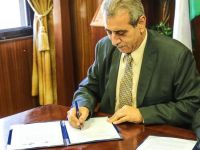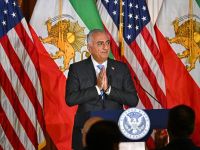When the European Central Bank convenes Thursday for its regular fortnightly policy-making meeting, the focus will be less on interest rates than on the fate of the euro in the wake of the latest slide in the 21-month-old currency, analysts said.
None of the economists polled by AFP and its subsidiary AFX said that they were expecting a further rise in euro-zone interest rates so soon after the moderate monetary tightening at the end of August.
But the markets were waiting to hear what President Wim Duisenberg would say about the euro's latest troubles at the news conference scheduled after the meeting, with the issue of intervention perhaps foremost on people's minds.
The ECB already announced a quarter-point increase in its key refinancing rate — to 4.50 percent from 4.25 percent — on August 31.
That meant that the bank has increased euro-zone interests a total of six times, by two whole percentage points in all, since last November.
The moves have so far done little to curb the current slide in the euro.
And additional monetary tightening might harm the euro further by putting the brakes on growth in the 11-country euro zone, economists suggested.
Nevertheless, President Duisenberg will have to come up with something more convincing than the usual litany of pro-euro comments if the markets are to be persuaded to end their speculative attack against the currency.
And not surprisingly, the debate about the likelihood — and efficacy — of central bank intervention has again come to the fore.
A report in the latest edition of weekly business magazine, Focus-Money, said that France, which currently holds the presidency of the EU, had begun talks with the United States with a view to orchestrating concerted intervention to prop up the euro.
Quoting French government sources, the magazine said that all euro-zone countries had agreed to the principle of intervention at a meeting of EU economy and finance ministers at Versailles, France, at the weekend.
France wants the euro to be traded at about $0.90, it added.
The report was promptly denied by the French finance ministry, which said that France stood by statements made at Versailles.
After the Versailles summit, EU finance ministers had said that intervention remained available at any time as a weapon on the foreign exchange market but did not say whether it would be used.
ECB President Duisenberg said the same on Tuesday, pointing out that intervention was always possible. And his comments helped the euro recover somewhat against the dollar.
US Treasury Secretary Stuart Eizenstat also said on Tuesday that the US were following closely movements in the euro exchange rate.
Duisenberg has said in the past that the ECB would only admit that it had intervened in the markets after the fact.
The Maastricht Treaty, which created the single currency, places responsibility for any international agreements on currency matters with ministers but stresses that the European Central Bank is independent regarding policies to ensure price stability.— (AFP)
© Agence France Presse 2000
© 2000 Mena Report (www.menareport.com)







